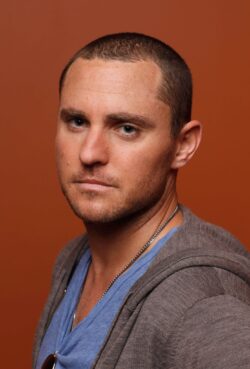Author and Entrepreneur Sally Olivia Kim Talks to TVGrapevine

Author and Entrepreneur Sally Olivia Kim Talks to TVGrapevine
Tell me a little bit about yourself and career.
Sally is a Korean American author and entrepreneur who discovered the power of ingestible skincare after severely burning herself. She started drinking collagen to help with recovery, and after falling in love with it, she embarked on a journey to bring collagen to everyone around her. She began formulating with her favorite superfoods to make delicious collagen-infused drinks known as Crushed Tonic. Sally has also published the book “The Collagen Glow” (found at Barnes & Nobles, Target & Amazon). Crushed Tonic is loved by Allure, Sephora, Equinox, Jetblue, KITH, Well And Good, and more!
My name is Sally Olivia Kim, and I am the founder/ CEO of Crushed Tonic and author of The Collagen Glow.
I was born and raised in Seoul and Orange County, California. I graduated from NYU and just moved to LA a couple years ago!
My background is in finance (venture capital) and strategy— but I am also a writer by trade.
I also have dabbled in other industries like modeling, data science, and coding!
Having worked as an investor at a late stage venture capital firm, I was exposed to a lot of great start ups. I loved rolling up my sleeves and brainstorming with these entrepreneurs on how to get to the next level— and in the process, I learned a lot about what it takes to become an investable brand.
ABOUT CRUSHED TONIC?
Crushed Tonic is an anti-aging ingestible skincare beverage brand formulated with collagen and other superfoods/ supplements (like probiotics, biotin, coffee / matcha / turmeric / lucuma). Crushed Tonic drinks are clinically proven for their health benefits on skin, hair, and whole-body health. Drinking these superfood-infused elixirs everyday will renew and rejuvenate you from the inside out.
Drinking Crushed Tonic for 30 days can plump your skin, strengthen your hair, strengthen digestion + immunity, and boost your mind.
What made you decide to develop Crushed Tonic?
I burned myself in a cooking accident, and discovered the power of collagen during my quest to find ways to heal my skin. When I realized how beneficial collagen was for your health, I had to have everyone around me take it!
I then tried to evangelize it to my aging parents and family, and this was where I saw another problem. Even if I educated them on the importance of this miraculous ingredient, no one wanted to ingest collagen, for how it tasted. And I didn’t blame them: had I not been burned so badly with blood blisters and needed collagen for its medical benefits, I am not sure if I would have stuck to it daily either. Which was why I began to flavor the collagen powder with other delicious ingredients that I knew would mask its gamey taste—and landed on formulations that I knew would get everyone so hooked on it, that they would CRAVE it daily.
What were some challenges of developing it?
Manufacturing— as a new brand creating a new product, we had no idea that we would sell out so quickly. We were so focused on what we would have to do if our products didn’t sell, that we had no idea how to solve the problem of when we sold too much. Of course, being out of stock sounds like a great problem to have— but upsetting our customers, or risking a partnership with your dream retailer because you legitimately don’t have product, or having to turn down magazine interviews because there’s nothing you can showcase– was a bit tough to get through.
On top of that, at one point, our manufacturer’s machine had broke— but they didn’t want to relay that to us as they were afraid to lose us as their client. Fortunately, we have since switched to a new manufacturer that was able to keep up, and help us scale quicker, than our former one!
What are some of the benefits of the product?
Collagen ingestion helps facilitate new regeneration of skin, muscle, bones, and hair: as the go-to medication for those with joint and bone diseases, it is known to reduce pain and improves mobility by stimulating the biosynthesis of type II collagen, the foundation of cartilage.
In addition, Tokyo Medical and Dental University found that age-related DNA damage triggers the destruction of a protein called Collagen 17A1. When stem cells in hair follicles are damaged by age, they turn themselves into skin. Over time, this happens to more and more stem cells, causing hair follicles to shrink and eventually disappear. By ingesting collagen, you could counter some of this damage and support your cells with amino acids vital for thick hair: proline, glycine, arginine and hydroxyproline.
Who should be using it?
Anyone and everyone!
Most are not aware that collagen is a natural protein that our body produces.
But not only is it something our body produces, it is integral in the making of our bodies— it is a major structural component that acts as a wall to hold our cells upright and structured (collagen is an important protein that makes up more than 75% of the protein found in our bodies— it is actually the most abundant substance in our bodies after water!)
Unfortunately, sometime after the age of 25, our bodily production of collagen begins to decline (at a rate of 1.5% year). By our mid 40s, our collagen supply is low— and without collagen, our cells lose structure. This leads to our cells becoming weaker, stretchier, and thinner— which then leads to things like wrinkles, fine lines, dark circles, dry skin, and cellulite.
Where can people find it?
Online— www.crushedtonic.com—
Our former / current partners include Jetblue, Sephora, KITH, Equinox, Earthbar, Anthropologie, Free People, and more!
My book can be found at Target, Barnes and Noble, Amazon and more!
You’re also an author. Tell me about your book.
I was approached by my book deal as the youngest brand to launch with Sephora.
The purpose for my book was to make nutrition easy for my readers and customers—
Healthy should not taste bad, or be difficult; it really comes down to a little research on what your body needs, and what kind of ingredients you substitute for healthier choices ( for example, instead of cane sugar, monk fruit or stevia!)
I also wanted to discuss Korean Diet and how directly correlated it is to our skin, and the health of skin is not just about “K-Beauty.”
Growing up in Korea, I was surrounded by seas of lotions, creams and moisturizers everywhere I went; therefore, I never second-guessed the importance of skincare. However, despite all the craze today around the ten-step Korean skincare regimen, the ubiquity of topical products after products, all of the different ingredients popping up (from snail oil to gold-infused creme), the only Korean Skincare ritual that my family has passed down to me, the only regimen I’ve strictly ingrained into my lifestyle, is the one spoken about the least: the Korean diet.
For those who have never had Korean food, Korean cuisine is always a balanced meal of collagen*-dense protein dishes (i.e. fish or pork/chicken barbecue with skin on) and rice (never bread), with lots of various fermented vegetables such as kimchi, and dwen-jang (soybean) paste. Kimchi, a fermented, pickled cabbage perhaps the most iconic of our culture, is dense with minerals, vitamins A, B and C, fat-free and most importantly, loaded with probiotics, a gut-friendly bacteria that takes shelter in your stomach once ingested. And what probiotics do for our health and our skin, is almost immeasurable: our stomach, AKA the “second brain,” is actually the ruler of our overall health. And when our stomachs are off (i.e. IBS/ constipation/ diarrhea/ even just too much of the wrong food), our skin takes a beating almost immediately. With probiotics, our stomach is able to fend off a lot of what causes these problems, and therefore get our skin to its optimal condition.
*For those of you who aren’t familiar with collagen yet— collagen is a type of protein that all living, breathing animals—including humans—produce. It makes up our bones, muscles, skin, and hair. Think of them as gatekeepers of moisture in our cells; and without this collagen “wall” to keep our cells hydrated, our cells increasingly lose structure, leading to weaker, stretchier, and thinner skin. And of course, this is what causes wrinkles, fine lines, dry skin, cellulite, and the loss of structure in your hair follicles (integral to holding on to your hair). And unfortunately, time and our environment, such as pollution, smoking, eating fried foods, and more, cause our body to produce less and less of it (a rate of 1.5% a year).
Ingesting collagen facilitates new regeneration of skin, muscle, bones and joint cells, something my mother and grandmother never let me forget if I ever decided to be picky with my food.
What else are you working on?
I am currently working on creating more educational content online and through my vlogs/ tiktok (@sallyoliviakim on YouTube and tiktok)
Anything else you want to share?
As I look to build Crushed Tonic, I aspire to create more than a few waves in the social-good space: environmental sustainability, paradigm shifts in gender-neutrality, and more awareness for wellness and nutrition.
I hope to remove the social stigma around recycling animal waste. The main ingredient in my product, marine collagen, is sustainably sourced. Because the collagen comes from fish waste (the fish skin would have been thrown away otherwise after the meat has been filleted)), sourcing the collagen does not add to the further harming of the environment.
I also hope to encourage more universality in wellness products. Skincare shouldn’t be just for women, and protein powder shouldn’t be for just men— yet so often, both categories use hyper-gender-prescriptive language and branding that could alienate those outside of that box. Wellness products should be more wary of such.
Lastly, another goal that I personally hope to achieve is to create a safer space in food and nutrition for women. Having suffered from eating disorders, I wish I was given a better education about nutrition, controlled diets, supplements, and role models who were open about their struggles.
PS–
Don’t just follow a brand from far away. Reach out to the founder—even if you’ve never met them—and offer to add value in some way without asking for anything in return. Don’t be scared to reach out to those who have inspired you, and let them know exactly why you were inspired. They may or may not respond, but if they do, do your best to become absolutely invaluable to them. You will learn so much from simply watching and listening to them, and if they learn anything from you, you’re doing something right. There’s probably at least one way you can try to help them achieve their next goal, whatever it may be—and who knows—you may become so integral to their company that they ask you to come onboard. If that’s not the case, you can still garner a great relationship and get to personally work with your own source of inspiration.










